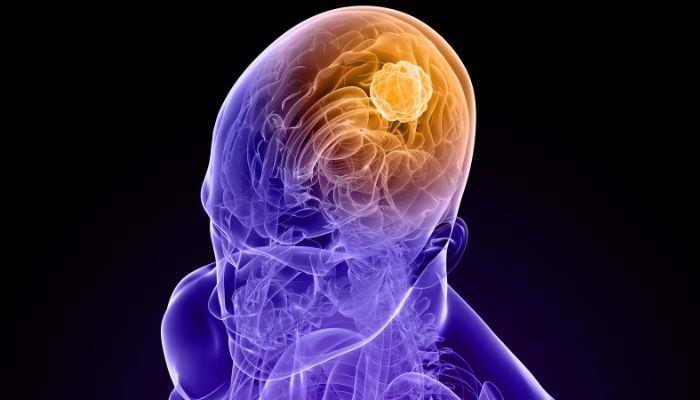A brain tumour is a serious health condition where a mass of cells grows in the brain. These cells accumulate and form a tumour, which in the worst case, can be fatal too.
Take a look at this article to know more about the types of brain tumours, their causes and some of the common ways in which they are treated.
What is a brain tumour?
A tumour occurs when a mass of cells grows uncontrollably in the brain. This mainly happens due to mutation in the cells. A healthy cell knows how to grow and when to die out. A mutated cell doesn't follow that pattern and keeps growing till there is a buildup of mass which transforms into a lump of cells, also known as a tumour.Types of brain tumour
There are two categories under which brain tumours are categorised, they are:Benign
A benign brain tumour is a type of tumour that stays lodged in one place. It grows to a certain size then stops growing. Benign brain tumours can safely be removed through surgery and they usually do not come back. A benign tumour doesn't pose a life risk and the patient can make a full recovery post-treatment.
Malignant
A malignant brain tumour is a type of tumour that keeps growing uncontrollably. It spreads to the other parts of the body too. Commonly, a malignant brain tumour happens as a result of another type of cancer, such as breast cancer or colon cancer. Cancer spreads to the brain and forms tumours that are malignant in nature.
Brain tumour symptoms
If you have a brain tumour, you are likely to face the following discomforts:- Persistent headache
- Blurred vision
- Imbalance
- Speech impairment
- Nausea and vomiting
- Confusion and inability to follow instructions
- Exhaustion
- Gradual loss of movements in the limbs
Brain tumour treatment
With such massive advancements in the medical field, there are many effective cures for brain tumours these days. Some of them are:Surgery
Surgery is a common cure for brain tumours. If the tumour is located in a safe part of the brain and is accessible, the surgeon will remove it. If however it is attached to the sensitive tissues and nerves in the brain, removing the tumour, or certain parts of it, can become risky. At such a time, the surgeon will remove only a part of the tumour. Partial tumour removals also cause relief from the symptoms and help to stop the spreading of the tumour.
There are however some risks, such as bleeding and infection, associated with any form of brain surgery and this is why you and your doctor should be very sure of the procedure before proceeding.
Radiation
In radiation therapy, high power beams like the X-Ray beams are targeted towards the brain. The beams are projected on the part of the brain where the tumour is located. If the tumour has spread all over the brain, then the entire brain is exposed to the radiation. Radiation commonly happens through an external projector. The machine is placed close to the patient’s head and the beams are radiated effectively. This is a popular and common way in which radiation therapy is used to treat brain tumours.
Chemotherapy
Chemotherapy is a very common remedy used to cure malignant types of brain tumours. Chemotherapy is the use of strong drugs, either administered orally or intravenously. Chemotherapy only works on a few types of tumours so, after a thorough investigation, your doctor will decide whether or not you can benefit from it. Chemotherapy is effective but has many side effects such as severe fatigue and a total loss of hair.
Continuous therapy
Recovering from a cancerous form of brain tumour is a long process. Even after you get discharged from the hospital, you will require many follow-up treatments. These include physical therapies mainly for those patients who lose movement in their limbs due to a deadly brain tumour. Also, you may need speech therapy to restore speech loss. And finally, you will have to undergo occupational therapy to get back to the daily routine and resume activities such as taking a bath by yourself, getting dressed and going to work.
Depending upon the severity of the tumour, the doctor will suggest the proper course of treatment.



